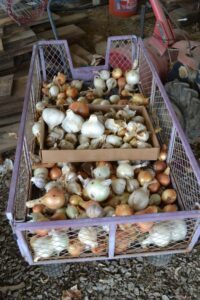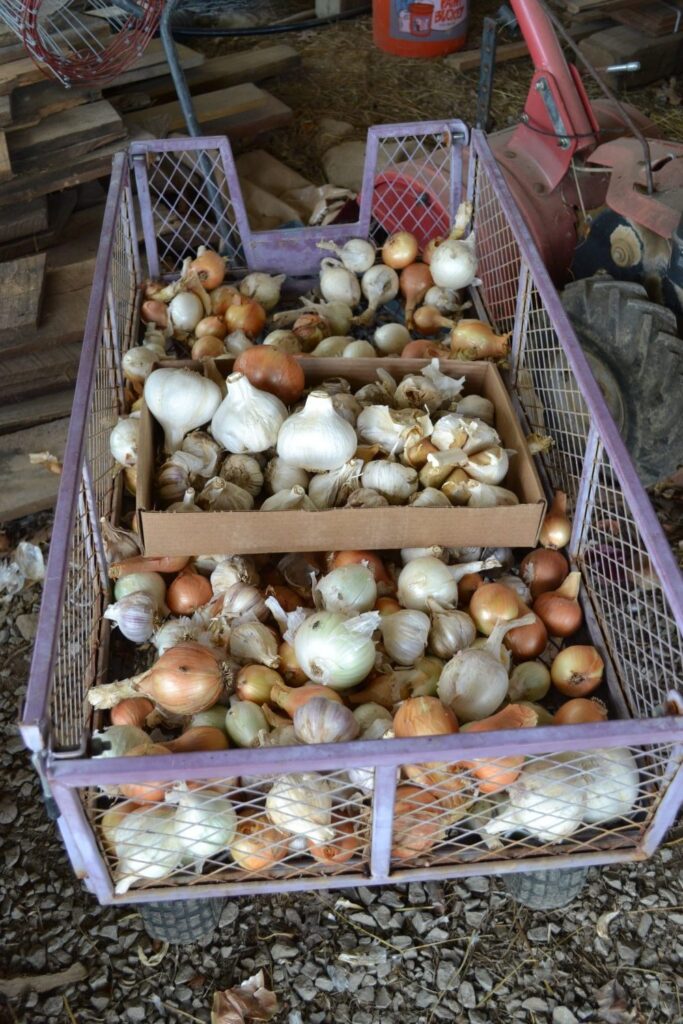Western North Carolina is a mecca for those interested in sustainability and organic food production, yet we are a long way from where we want to be.
In our vision of a vibrant food and farming community in Western North Carolina and beyond, every person would be engaged in some form of food production. Home and community growers are central, dynamic and vital partners in the development of the sustainable food movement.
Developing the skills, confidence, and output of home-growers is a vitally important area of development for any region interested in food resiliency.

The Victory Garden program of the early-to-mid-1900s is a great example of a far-reaching and successful ongoing campaign to increase social understanding of the importance of reclaiming agriculture in daily life. At the height of the Victory Garden program in 1943 and 1944, it had 20 million gardens in the U.S. and grew 45 percent of the vegetables and fruit consumed nationally.
Imagine 20 million gardens in the U.S. today. Imagine 50 million lawns, parks and community gardens made productive. Imagine 40 to 50 percent of a region’s food grown locally by the very people eating it.
It is possible. Yet the unmet needs are many, ranging from education, outreach, and public awareness to access to land, economic support, networks, and rebuilding community.
While the industrial revolution promised to liberate us from rural life and physical toil, it has created more problems than it has solved. Chemically-based methods and GMO foods are compromising our health and our environment, and the promise of mechanized agriculture to feed the world has fallen short.
According to the statistics on world hunger, 842 million people in the world are food insecure. Due to this rising rural poverty, world hunger, and environmental concerns, world leaders are encouraging a shift from industrial agriculture to diverse productions systems that improve soil, support farmers and feed communities.
We define the unmet needs in these social, environmental, political, and community contexts:
- The Big-Picture Problem: Big agriculture and globalization results in a loss of biodiversity, environmental crises, reduced food and community resilience, increased world hunger, and an overreliance on industrial food systems.
- The Community Problem: Our food and farming heritage and culture are fragmented by the agribusiness agenda and our communities have little cohesion with regards to interdependence, skill-sharing, or celebration of food and growing.
- The Family-Farms Problem: The average age of farmers nationally is 58; traditional methods of farming and knowledge transfer have been lost; there is strong development pressure on North Carolina farmland; and there are many barriers to farming including access to land, capital, training, support, etc.
- The Home-Grower Problem: The industrialization of food and growing leaves the average person out of touch with the basics of food, kitchen, and garden literacy. The loss of ancestral knowledge and of a local food community leaves people disconnected, disempowered, and insecure.
- The Healthy-Eater Problem: Misinformation and manipulation by our current food system are leaving eaters sick and ill-informed.
The good news is that from all sectors, research is showing that sustainable agriculture—in the form of agroecology and resilient local food systems—offers promise for addressing our failed food systems.
Addressing the food crisis is going to take all of us, and we must start now. We must inspire, encourage, educate and support the average person to grow food in order to strengthen communities, reclaim food sovereignty (where the eaters make the decisions about the food life cycle), and prepare for global energy peaks and climate change.
The small-scale grower is the sustainable grower, which means planting a variety of crops, without chemicals, and eating fresh where the food is produced.
As the average person is inspired to re-engage with growing and to repopulate their daily lives with home-grown food, the following outcomes will be additional benefits:
- Enhanced personal food security, self-reliance, and empowerment within each grower.
- Expanded home-grower interests into food production, processing, storage, and sharing to increase regional food security and community resilience.
- The development of regional interdependence, community resilience, and local food sovereignty by adding home gardeners as allies.
- Increased environmental stewardship, nature and ecological awareness, best land use practices, attention to water and soil quality, focus on local food, conservation-mindedness, and overall appreciation for the web of life on the part of home growers.
- The establishment of Western North Carolina as a region committed to regional food systems, small-scale sustainable agriculture, and a food- and growing-literate population.
Now is the time. We must end our over-reliance on industrialized food systems and create a region of inspired, educated and confident food growers.
The ultimate outcome is an empowered population successfully growing organically on a home- and community-garden scale, who are financially and nutritionally resourced, ready to take a seat at the political table and use their voice to advocate for more equitable, sustainable and accessible food systems and a vibrant, engaged community.
Lee Warren is the executive director of Organic Growers School, offering organic education to the Southern Appalachians since 1993. Organic Growers School provides practical and affordable organic education regionally, building a vibrant food and farming community by boosting the success of organic home growers and farmers. Their hands-on trainings, workshops, conferences and partnerships strengthen and celebrate each grower’s move towards self-reliance.
You can also view this article as it was originally published on page 66 of the 2017-18 edition of the directory.


